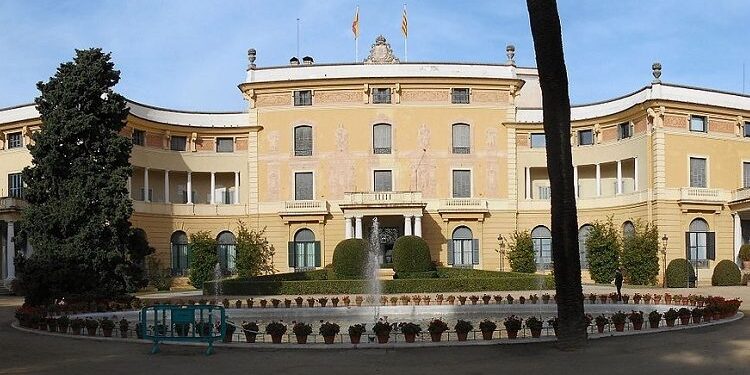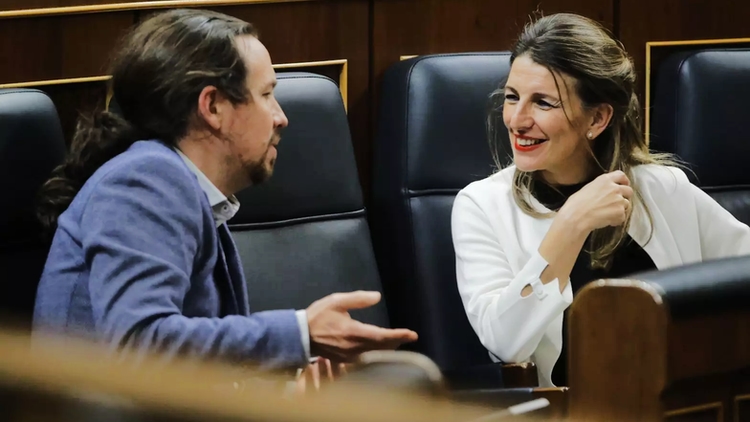Eduardo González
The two shores of the Mediterranean will have a double appointment this coming Thursday in Barcelona on the occasion of the celebration of the seventh Regional Forum of the Union for the Mediterranean (UfM) and the fourth meeting between the EU and the Southern Neighborhood.
In the morning, the Pedralbes Palace will host the Regional Forum of the Union for the Mediterranean (UfM), headed by its two co-presidents, the EU High Representative for Foreign Affairs and Security Policy, Josep Borrell, and the Deputy Prime Minister and Minister of Foreign Affairs of Jordan, Ayman Safadi. The meeting will be attended by UfM Secretary General Nasser Kamel and Spanish Foreign Minister José Manuel Albares as host.
Apart from that, the regional forum (the seventh since its launch in 2015) will bring together the foreign ministers of the 42 UfM member states (the 27 EU countries plus 15 other countries from both shores of the Mediterranean (Albania, Algeria, Bosnia and Herzegovina, Egypt, Israel, Jordan, Lebanon, Mauritania, Mauritania, Monaco, Montenegro, Morocco, Palestine, Tunisia, Turkey and, as an observer, Libya; Syria froze its participation in the UfM in December 2011). The list will be extended at this edition, since, for the first time since the creation of the Union in 2008, the entry of a new member state will be approved: North Macedonia.
The agenda planned for this edition, as stated in the invitation letter from the co-presidency, includes five major priorities, established at the 2020 forum (coinciding with the 25th anniversary of the Barcelona Process that led to the creation of the UfM): climate and environmental action, economic and human development, social inclusion and gender equality, digital transformation and civil protection.
The event will begin the day before, with several discussion forums on issues such as the energy and food crises or the boost to employment and youth policies, and has been preceded by three ministerial meetings in 2022: a meeting in May, in Marrakech, on labor and employment; a second virtual meeting (although organized by France) on research and investment; and a third, held recently in Madrid, on gender equality. Two ministerial meetings on trade (in Valencia) and on higher education and research (in Morocco) are scheduled for 2023, and a third, in Zadar (Croatia), is proposed on urban development.
Southern Neighborhood
According to foreign affairs sources, this regional forum will inevitably address the consequences of the war in Ukraine on the Euro-Mediterranean region, especially in the areas of food and energy. However, these issues will be dealt with in much greater detail at the EU-Southern Neighbourhood meeting, which will be held in the afternoon at the same venue and will bring together the foreign ministers of the 27 EU states and nine countries from the southern shores of the Mediterranean: Algeria, Egypt, Israel, Jordan, Lebanon, Libya, Morocco, Palestine and Tunisia. Syria’s participation is suspended.
This is the fourth meeting between the two blocs since 2015 (when the first edition was held, followed by two others in 2018 and 2021). Precisely, as reported by Foreign Ministry sources, one of Spain’s major objectives is precisely to ensure that this meeting is held with greater regularity and with the same degree of institutional representation as the meeting between the EU and the Eastern Neighborhood.
In this sense, the same sources have positively valued that the Foreign Affairs Council (FAC) of last November 14 made a mention to this meeting in Barcelona. Likewise, they have expressed their hope that the next Med9 Summit (the Euro-Mediterranean Group, formed by Spain, France, Italy, Greece, Portugal, Malta, Cyprus, Croatia and Slovenia), to be held on December 9 in Alicante, will be an “endorsement” of this forum and that the conclusions of the European Council of December 15 and 16 will also make reference to the Southern Neighborhood.
The Barcelona meeting will revolve around three axes: the new Mediterranean agenda of 2021 (urban development, resilience, digital transformation, peace and security, migration and mobility and green transition), the consequences of the war in the region in terms of energy security and food crisis and, precisely, the institutional architecture of the Southern Neighborhood, which is less structured than the Eastern Neighborhood.
Algeria
The fact that the energy issue is to be addressed makes the presence of the EU’s main suppliers in the region particularly necessary, including Algeria, a country that maintains particularly tense diplomatic relations with two of the major protagonists of both the UfM Regional Forum and the EU-Southern Neighborhood meeting: the host Spain and Morocco.
In fact, in 2021, the foreign ministers of Morocco (Nasser Bourita) and Algeria (Ramtane Lamamra), whose diplomatic relations remain broken at present, did not attend Barcelona. Last year, Spain’s main problem was the serious deterioration of its relations with Morocco because of their differences over the Saharawi dispute, but the new stage of friendship initiated by both countries due to the new position of Pedro Sanchez’s government regarding Western Sahara has resulted in a very serious diplomatic crisis between Spain and Algeria, a great ally of the Polisario Front and the main supplier of gas to Spain, in the midst of international energy uncertainty due to Russia’s war in Ukraine.
Foreign sources assured that the list of participants is not yet closed and, therefore, it is not yet possible to know which ministers will attend the Barcelona meeting. However, they also expressed their confidence that the double appointment will bring together a significant number of foreign ministers (especially after the “growing interest” that the UfM Regional Forum has experienced since its launch in 2015) and that the “normal” thing is that Algeria, an active partner in the Euro-Mediterranean sphere, will participate at the highest level in both forums, since, as a major energy supplier to the EU, it is particularly interested in some of the issues that could be addressed in Barcelona, such as interconnections and infrastructures.







